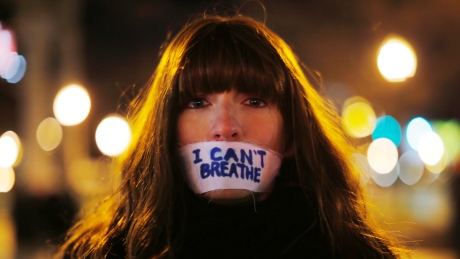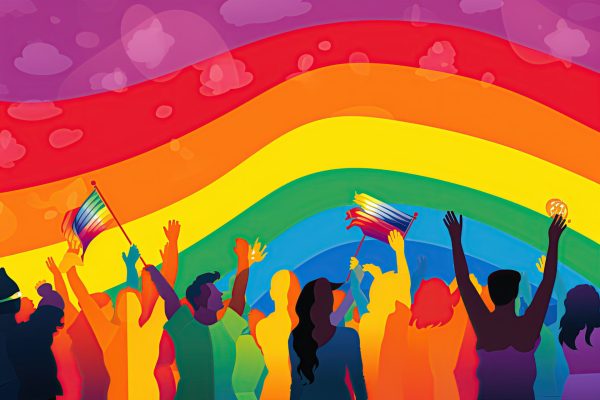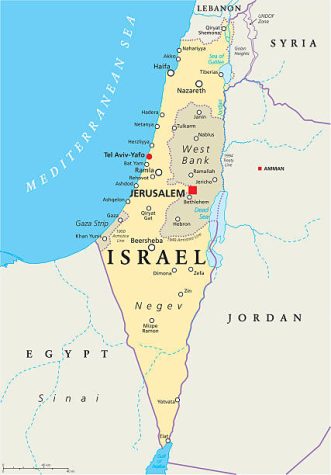Race matters: recent trends highlight ignorance

I CAN’T BREATHE: The protests for Garner’s case extended onto the streets of Boston.
Turn on Fox News and you’ll hear, “Liberals love to make everything about race!” That bugs me. My favorite line is, “You know who likes to talk about race? Racists!” Yes, there are times when race isn’t an issue, but open your eyes and take a look around – sometimes being black, white, hispanic or asian makes a difference. You can ignore the fact that people have different color skin than you all you want, but that doesn’t help the cause. Being colorblind does just as much for minorities as racism. Admitting that isn’t being racist or race-obsessed. It’s the cold, hard, devastating truth; race matters.
It’s been a crazy few weeks, to say the least. Racial tensions have skyrocketed in response to events in Ferguson and New York City.
I’ll refresh your memory.
In Ferguson, Michael Brown, an 18-year-old black teenager, was shot and killed by Darren Wilson, a 28-year-old white police officer. Wilson was not indicted. In New York City, 43-year-old black man Eric Garner was suffocated to death after being put in a choke hold by 29-year-old white police officer Daniel Pantaleo. His crime? Selling loose cigarettes. Pantaleo was not indicted.
I can understand the reasoning behind Wilson escaping indictment. The Ferguson case had conflicting autopsy reports, adamant witnesses and a lack of video evidence. But the Eric Garner case had extremely strong evidence in all areas, specifically clear video evidence of police brutality. In other words, it had everything that Ferguson was missing. Still, the white police officer wasn’t indicted. You can try to tell me that this isn’t about race, but it is.
The justice system is faulty, there’s no doubt about it, but these cases highlight more than a failed government system. They highlight the immense societal disparities that blacks face in this country. To delve into the topic a bit deeper, I researched nationwide marijuana arrests.
Members of the black community are more frequently arrested for marijuana possession, despite an equal – if not higher – rate of drug possession among whites. A study conducted by the American Civil Liberties Union found that blacks are 3.73 times more likely to be arrested for marijuana possession than whites. In 2010, nationwide the white arrest rate was 192 per 100,000 whites, and the black arrest rate was 716 per 100,000 blacks. Unfortunately, there is a higher arrest rate for blacks than whites even though the use of marijuana is inversely related. In every year from 2001 to 2010, more whites than blacks between the ages of 18 and 25 reported using marijuana in the previous year. Additionally, each year over the past decade more blacks than whites reported that they had never used marijuana. Evidently, there is a clear disadvantage to being black when illegal drugs are involved.
It’s not a coincidence that the black community is subject to such inequality and despair. There’s a reason that in 2012 there were only six black CEOs in the Fortune 500.
Conservatives argue that no matter what your race, you can achieve anything if you work hard enough. That’s ridiculous.
Sure, my hard work gives me a very high chance at success, whatever that may be, but I’m a white, upper middle class teenager living in one of the best neighborhoods on the North Shore. My standards of hard work don’t apply to a black kid living in Austin, South Shore, Englewood, West Englewood, West Pullman, Roseland, North Lawndale, Greater Grand Crossing, Auburn Gresham or West Garfield Park. Those are the ten neighborhoods in Chicago with the most homicides, and they are all 86 percent black or higher.
Deerfield is the definition of white privilege. Behind Stevenson, we are the best public high school in Illinois, and we have a very low poverty rate. Additionally, 94 percent of the class of 2014 went on to a four-year university, and 3 percent went on to a two-year university. Our environment here has a crucial impact on our lives, and it’s not a coincidence that black people haven’t experienced it until recently. In 1959, in a demonstration of the “Not in My Backyard” concept, a stop-work order was issued by Deerfield officials to a developer building a neighborhood available to black people. Instead of housing, the real estate was built into Mitchell Pool. Sorry potential black residents, the white people wanted to swim.
Instead of DHS, the inner-city, poverty stricken black teenager goes to a school like Austin Polytechnical Academy High School. Austin Polytechnical has a minority enrollment of 100 percent, and 92 percent of students are economically disadvantaged. Seven percent of students are proficient at reading and math, and the school’s college readiness index is at a 7.3 out of a possible 100. My grandpa went to high school in Austin – he didn’t learn how to write a paper until college. At the opposite end of that spectrum is DHS. We have a minority enrollment of nine percent, and two percent of students are economically disadvantaged. Around 90 percent of students are proficient in reading and math, and we have a college readiness index of 62.3.
It is worrying to me that we live in a society that, despite having all the evidence in the world, needs tragedy to realize that race makes a difference. We live in a world too defined by our efforts at tolerance to harbour such a gaping flaw. So it’s important to not only stay informed and watch the news, but to formulate your own opinions. If you happen to live in a privileged community, recognize it, and try to give back. Support inner city education and legislation that provides support to underprivileged areas. Our opinionated species is too susceptible to racism for it to ever disappear, and being aware is the best way to deal with it. So turn off your television, close your Macbook and ignore all of the fact-lacking, colorblind critics, because although it might not always seem the case – race matters.





